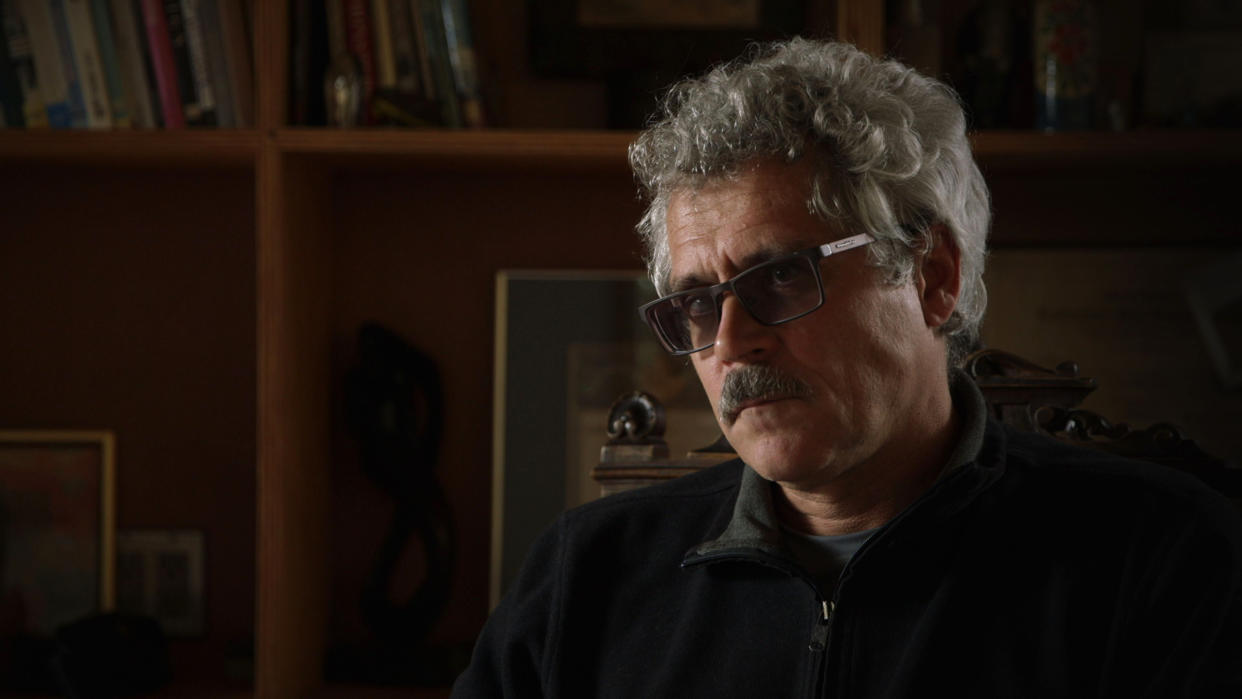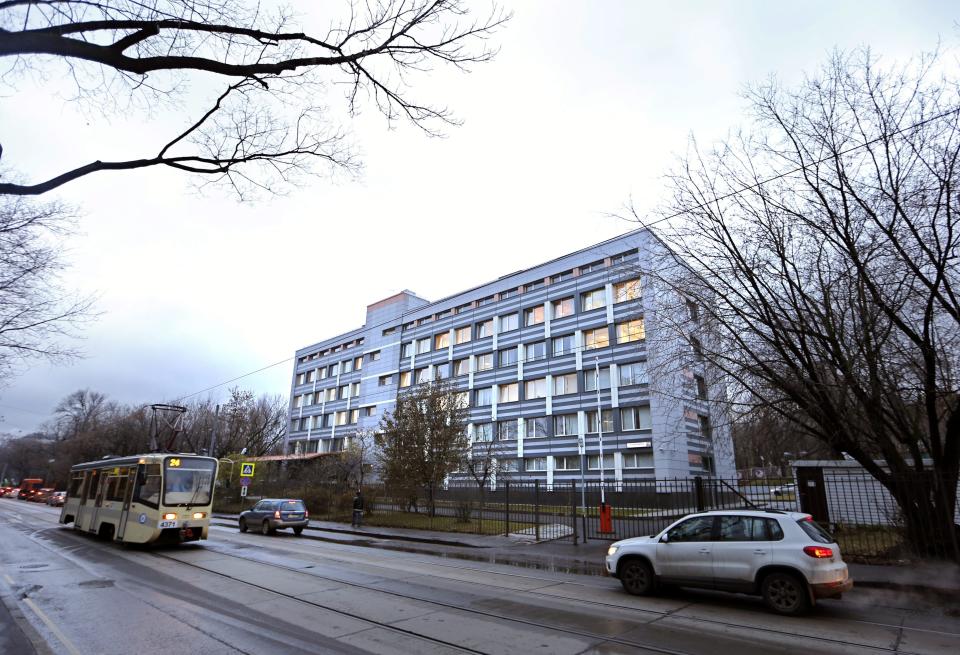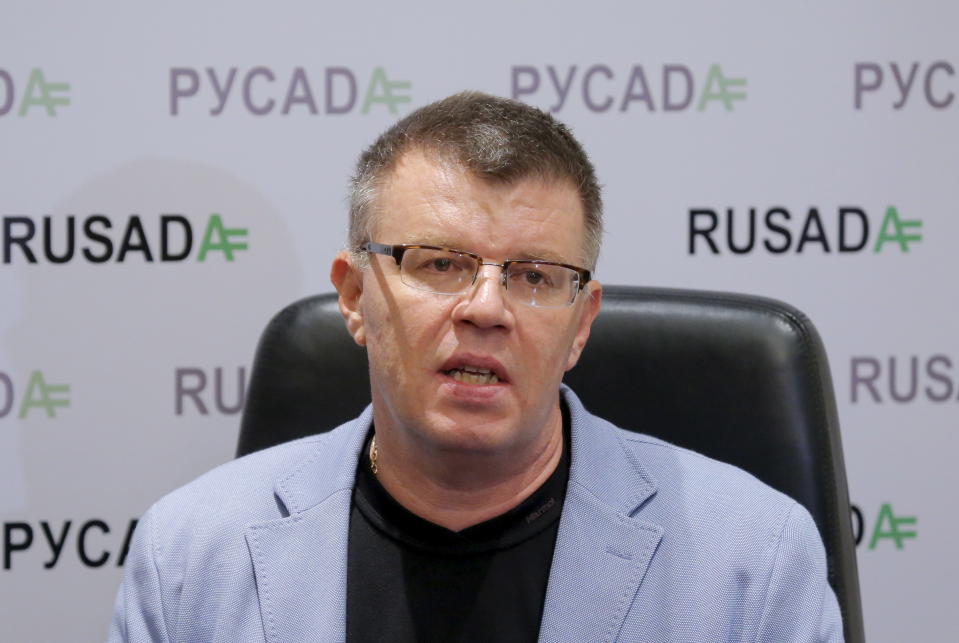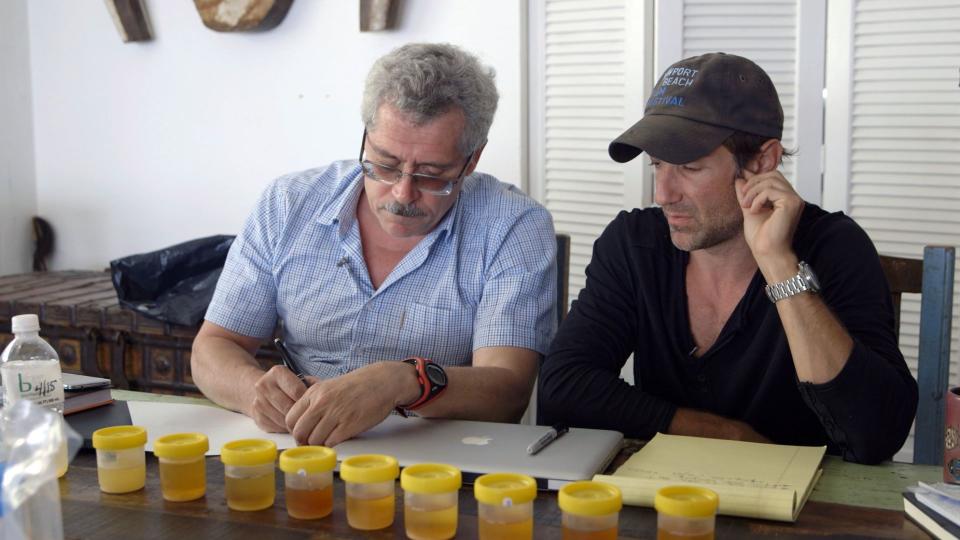As Putin seethes over Olympic ban, doping whistleblower fears for his life

The whistleblower who exposed Russia’s systematic doping of Olympic athletes has been warned by U.S. officials that Russian agents may be inside the United States looking for him, and that new security measures needed to be taken to ensure his safety, the lawyer for the whistleblower tells Yahoo News.
The warning about a possible threat on the life of Grigory Rodchenkov, former director of the Moscow Anti-Doping Center — and by his own admission, one of the masterminds of a vast Russian state-run cheating scheme — came earlier this month, within a day after the International Olympic Committee banned Russia from participating in the upcoming Winter Games in Pyeongchang, South Korea, according to the lawyer, Jim Walden. The ban, which has been vigorously protested by Moscow, was imposed after Rodchenkov, who fled to the United States two years ago, told authorities how with the assistance of Russia’s intelligence services he had helped the country’s athletes dominate the Winter Olympics in Sochi in 2014 — and evade detection by tampering with urine samples.
Rodchenkov is now in hiding, and participates in the U.S. government’s federal witness protection program. But Walden, a former federal prosecutor who now represents Rodchenkov, told Yahoo News he was recently informed by a U.S official that “you have to assume there are people here looking for him” and that there needed to be a “significant change” in the protocols for his security.
“It’s an incredibly tense situation,” Walden said. “If they get the opportunity, they will take him out.”
Walden declined to provide any more details or identify the U.S. government official that alerted him to the concerns about his client’s safety. But Walden said enhanced security measures have already been taken and he has not even been able to communicate with his client for more than a week. (He said, however, he has been assured of his safety.) A spokesman for the FBI, which tracks Russian intelligence efforts in the United States and assists the U.S. Marshals Service in the witness protection program, declined to comment. A spokeswoman for the Russian foreign ministry did not respond to a request for comment.

The warning comes at a time when the Russian government of Vladimir Putin has ramped up its attacks on Rodchenkov. Prosecutors in Russia have filed criminal charges against him, accusing him of drug trafficking, and insisted he be returned by the U.S. government to Russia — a demand that is unlikely to be granted given that there is no extradition treaty between the two countries.
Putin, who greatly values his country’s Olympic program, weighed in on Rodchenkov’s fate during his annual end of the year press conference on Dec. 14. He suggested that the whistleblower was being drugged and manipulated by U.S. intelligence agencies.
Rodchenkov’s presence in the U.S. “is not a positive for us, it’s a negative,” Putin said. “It means he’s under the control of American special services. “What are they doing with him there?” Putin added. “Are they giving him some kind of substances so that he says what’s required?”
Concerns about Rodchenkov’s safety extend beyond the Russian president’s remarks, according to Travis Tygart, chief executive officer of the United States Anti-Doping Agency, a U.S.-funded nonprofit that has worked closely with Rodchenkov since he came to the United States. He noted that one top Russian Olympic official recently suggested that Rodchenkov deserved to be executed. “Rodchenkov should be shot for lying, like Stalin would have done,” Leonid Tyagachev, who was the head of the Russian Olympic Committee from 2001 to 2010 and remains its honorary president, said in remarks on a Russian radio station.
That threat was taken especially seriously in light of the unexplained deaths of two Russian Olympic officials last year who had worked with Rodchenkov, Tygart added. One of them, Nikita Kamayev, the former executive director of Rusada, Russia’s anti-doping agency, died in February 2016 from an apparent heart attack at the age of 52, reportedly after contacting a journalist offering to speak out about Russian doping. Just days earlier, Vyacheslav Sinev, Rusada’s former general director, also died of unknown causes.

“There are a lot of people who don’t want the truth exposed,” said Tygart. Speaking about the potential threats on Rodchenkov’s life, he added: “This is a serious issue and has to be taken seriously.”
Walden, Rodchenkov’s lawyer, says an additional cause for concern about his client’s welfare is the timing of the criminal charges filed by Russian prosecutors against Rodchenkov for drug trafficking, which came with a warrant for his arrest. It was, he said, the same day that Rodchenkov was taking part in a confidential interview with U.S. immigration authorities over his status in the United States. The fact that the Russians filed the arrest warrant that day, Walden said, suggested they may have been tipped off, and filed the criminal charges in order to undercut his application to remain in the U.S. by branding him a fugitive from Russian justice and demand his extradition, he said.
“That is a coincidence too remarkable to believe,” said Walden. “It seems fairly clear they were trying to influence the immigration process.”
Walden, in a statement he released to Yahoo News, said that Rodchenkov had disclosed “the single greatest conspiracy to cheat the Olympics” and called on the International Olympic Committee to demand that Russia stop its efforts to retaliate against him. If the Russians were to succeed in their efforts to have Rodchenov returned, he “would face death and torture at their hands.”
Rodchenkov’s role as the chief of the Russia anti-doping program — while secretly running an operation to help Russian athletes avoid detection for injecting banned substances —received widespread attention earlier this year with the release of “Icarus,” a Netflix documentary about the inadequacy of drug-testing programs in international sports. The film showed Rodchenkov instructing the filmmaker, an amateur bicyclist named Bryan Fogel, on how to inject himself with performance-enhancing drugs to boost his performance in a bicycle race in France — and how to swap urine samples in order to avoid detection.

Rodchenkov’s troubles began after a report in 2015 by the World Anti-Doping Agency, which found evidence of systematic doping among Russian track and field athletes. He was forced to resign, and, fearing for his safety, fled to the United States and began describing the scheme he helped run to Olympic authorities and other organizations — and to the media. Working with the Russian Federal Security Service (FSB), the Russian spy agency formerly headed by Putin, Rodchenkov, under the direction of Russia’s sports ministry, claims he supervised a system in which urine samples were smuggled out of the storage room through a hole in the wall, secretly unsealed and their contents swamped, allowing athletes to take banned substances to avoid detection. After the Sochi Olympics, Rodchenkov was awarded a prestigious “Order of Friendship” medal by Putin.
Since coming to the U.S., Rodchenkov has continued to provide evidence about the Russian doping program, including turning over incriminating emails and diaries to the World Anti-Doping Agency and other international investigators. Some of the emails suggested Russian officials had given banned steroids to blind powerlifters in competitions for the disabled without the knowledge of the athletes.
“It’s a disgrace,” Rodchenkov wrote to an official at the Russian Sports Training Center, in one of the emails that has since been made public. The coaches were “picking on the blind [who] can’t even see what people are giving them.”
Walden said U.S. Justice Department investigators are also working with Rodchenkov, exploring possible racketeering charges against the Russian officials responsible for the country’s doping program. Some 33 Russian athletes had their medals revoked by the IOC and many of them are appealing that decision to the appellate body in Switzerland — a process for which Rodchenkov’s testimony is critical.
That has given the Russians new incentive for silencing Rodchenkov, Walden said. “If they can get him arrested or kill him,” Walden said, and his testimony is no longer available, the ban could be reversed.
Richard McLaren, a Canadian law professor who prepared a detailed report on Russian doping for the World Anti-Doping Agency based in large part on Rodchenkov’s evidence, said the Russian’s testimony is still critical in order to explain many of the entries in his diaries — a body of evidence about Russian doping that has not yet been fully explored.
“The Russians would like to shut [the investigations] down permanently, and the best way for them to do that is for him not to be around,” McLaren said. “The threat is real.”
_____
Best of 2017 Yahoo News Features



